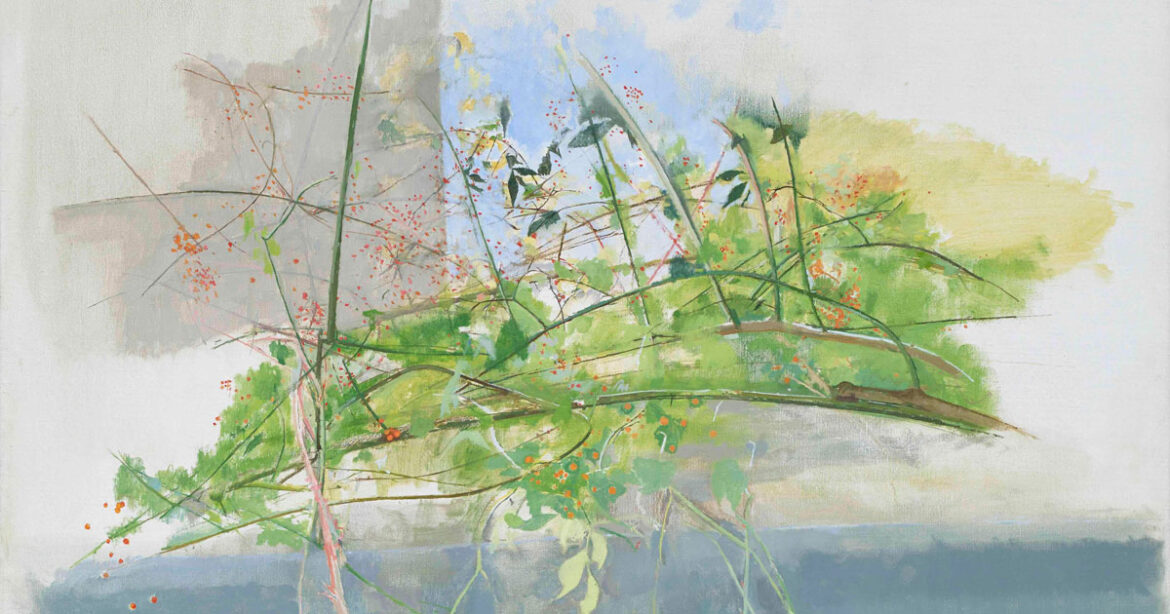Ending this weekend, Wolfson College’s thought-provoking exhibition probes the thin boundary between life and death in medical sciences
Words by Alex Fice | Image © Charlotte Verity
When it comes to modern medicine, we have lots to be grateful for. The treatments we receive today have only been made possible as the result of millennia of curiosity, experimentation and trial and error. The latest art exhibition at Wolfson College, Kill or Cure, explores how the natural world has informed, inspired and transformed the medical sciences, and investigates how plants, animals, natural substances and resources have the ability to save a life – or take it away.
Drawing on the personal experience of a close family member being taken into intensive care last year, the exhibition’s curator Dr Anna M Dempster came up with the idea for Kill or Cure after observing how the same drug can keep a heart beating or cause it to fail, depending on the dose. “I wanted to take a somewhat dark experience and translate it into something positive – which reflects how a lot of art comes about,” comments Anna. “I wanted to create an opportunity to explore these ideas from different perspectives – both scientific, but also aesthetic – in a way that communicates with different audiences and the wider public.”
The theme reflects Anna’s long-standing interest in the relationship between the arts and sciences. “Even though they are often treated as distinct and opposed, I believe that art and science are concerned with the same fundamental questions about the nature of things. They are both fascinated by the same phenomena, and characterised by curiosity and experimentation,” she observes.
“There are few better places to explore relationships between art and science than in a city like Cambridge, which is known for its world-class research and as a hub of entrepreneurship and innovation. Critically, it is also welcoming to diverse people and cultures; we are very lucky to live in a city which welcomes people from all over the world, is accepting of different ideas and willing to share them,” she adds.
Reflecting this ethos, the exhibition features 36 contemporary artworks and two installations by 32 artists from different parts of the world. It includes contributions from leading international artists as well as pieces created by students and staff at the University, plus Cambridge residents in response to an open call for submissions back in April of this year.
“It was the first time Wolfson College – or any college in Cambridge – had tried such an open call,” says Anna. “I was really delighted with the response. By Easter break, we had the difficult task of selecting pieces for the exhibition from a large number of international submissions.
“It might seem strange to mix professional and amateur artists, but there is a long tradition of this in the UK with the Royal Academy Summer Exhibition in London,” she adds. “For me, there is something quintessentially British about mixing the high- and low-brow – it’s slightly irreverent to established hierarchies and ways of doing things.”
Highlights of the exhibition include a mesmerising digital work by Mat Collishaw, Columbine, the first of his works to be displayed in Cambridge. There is also a piece by Charlotte Verity; according to Anna, she is one of the most accomplished and remarkable contemporary painters working today. “Her elegant and subtle paintings hide a deep sophistication and complexity, which reflects our current world, its uncertain state and anxieties in thought-provoking ways.”
A group of artworks by Argentinian artist Julieta Hanono highlights the relationship between the Qom (an indigenous people of Argentina and wider South America) and the natural world. There is also a moving video by Berlin-based artist Adrien Missika, which shows the artist cleaning dust-clad plants growing in the concrete underpasses of Mexico City – a call to action for us to take better care of the natural world and remedy the pollution we have created.
As well as providing the opportunity to see a selection of works that have never been displayed in Cambridge before, the exhibition provides the perfect excuse to venture beyond the gates of a college and discover a new side to the city.
“Coming into a college can seem daunting, but Wolfson isn’t like any other in Cambridge!” says Anna. “Slightly off the beaten track, Wolfson College famously has some of the friendliest porters. They will welcome you when you arrive and direct you upstairs to the exhibition, which is displayed across a number of rooms overlooking the grounds and gardens.”
It’s a peaceful location, one that’s conducive to a moment of quiet reflection on the ideas presented in the exhibition.
Kill or Cure is open to the public at weekends, 10-5pm, with the final days on 8-9 October. Contact the Porter’s Lodge at Wolfson College to view outside these hours

